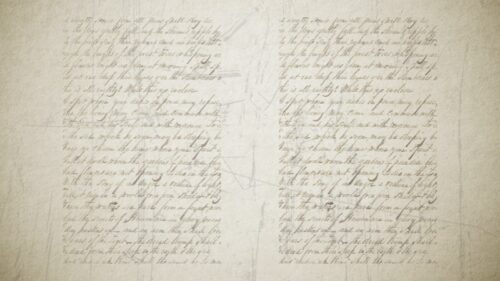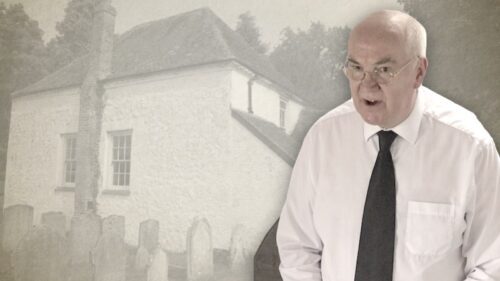-
May The Grace Of Christ, Our Savior
Some of the points covered in this sermon: • Highlighting the subject and theme of the hymn—Covenant Blessings, the assurance and joy of the covenant blessings of God and His church • Explaining the meaning and significance of a covenant • Showing how the covenant of works, covenant of grace and a church covenant fit together according to the framework of sovereign grace • Expounding the two stanzas of Newton’s hymn • Stanza 1: The Gracious Covenant • Stanza 2: The Church Covenant • Showing how Paul’s farewell blessing in 2 Corinthians 13 aligns with Newton’s hymn Some of the points covered in this sermon: • Reviewing the subject and theme of Newton’s hymn, “May The Grace Of Christ, Our Savior” • Aligning Newton’s…
-
My Faith Has Found A Resting Place
Some of the points covered in this sermon: • This hymn is a confession of faith with respect to regenerating and redeeming grace • Explaining the doctrines of redemption and regeneration, using the framework of sovereign grace as a backdrop • The first two stanzas speak of regeneration, whereas the last two stanzas speak of redemption • Stanza 1—God’s work in His people: Regeneration (resulting in saving faith) • Stanza 2—God’s work in His people: Regeneration (established in stedfast assurance) • Stanza 3—God’s work for His people: Redemption (what Christ did—obedience/death) • Stanza 4—God’s work for His people: Redemption (for whom He did it—the elect) • The refrain speaks of experiential grace, opposed to academic or decisional grace
-
Dispensations Of Disgrace
Some of the points covered in this sermon: • Providing a historic backdrop to Dispensationalism • Defining a ‘dispensation’ according to the signification of Scofield • Highlighting the first of two primary principles of interpretation which undergird the Dispensational framework—“rightly dividing the word of truth” • Explaining the basic fabric of the Dispensational framework—a timeline with eternal extensions, seven major events, seven major dispensations, seven major themes, seven major covenants • Distinguishing between the Dispensational and Calvinistic use of biblical language • Explaining how Dispensationalists have invented different plans of salvation • Showing why Dispensationalists sideline the first three dispensations • Showing why Dispensationalists focus on the fourth and fifth dispensations • Explaining the difference between Dispensationalism’s view of God’s “elect people” based on race,…
-
Dispensations Of God’s Grace
Some of the points covered in this sermon: • Reviewing the structure of Genesis 5:1-6:8 • Reviewing the structure of Genesis 5:3-32 • Showing the structure for each of the ten tables of descendants • Affirming the biblical term and concept of “dispensation” • Explaining how every member of the human race is a dispensation of God’s grace • Distinguishing between the unregenerate, who are dispensations of God’s common grace unto creation, under the authority of the covenant of works; and the regenerate, who are dispensations of God’s special grace unto salvation, under the authority of the covenant of grace • Closing with a challenge based on the teachings of James 4, Ephesians 5 and Psalm 90
-
Thou Hast Delivered
-
The Benediction
A sermon preached on the occasion of the 200 year anniversary of Providence Strict Baptist Chapel, Bradenstoke.



